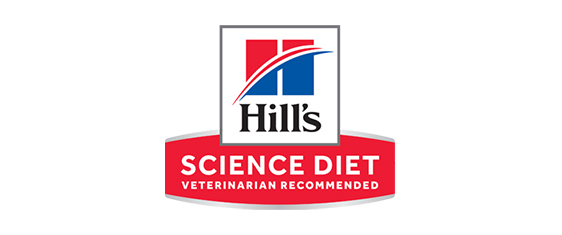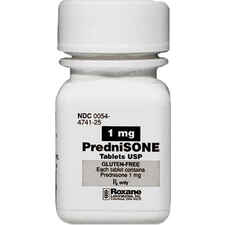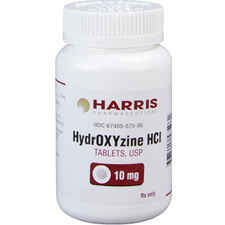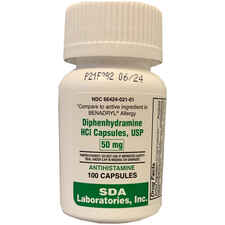How to Treat a Dog or Cat With Allergies
Doctor of Veterinary Medicine

While efforts are made to answer all questions as quickly as possible, if an immediate answer is required or if your pet is in need of urgent or emergency care, contact your pet's veterinarian immediately.
Doctor of Veterinary Medicine

You will receive an answer from Dr. Lindsay and our vet/tech team as soon as possible, usually the same day.
All answers are provided for informational or educational purposes only, and are intended to be a supplement to, and not a substitute for, the expertise and professional judgment of your pet's veterinarian.
It may be necessary to consult your pet's veterinarian regarding the applicability of any opinions or recommendations with respect to your pet's symptoms or medical condition.
CloseDoctor of Veterinary Medicine

An error has occurred, please reload the page and try again.
CloseWhile efforts are made to answer all questions as quickly as possible, if an immediate answer is required or if your pet is in need of urgent or emergency care, contact your pet's veterinarian immediately.
There is no answer related to your question
The sad news is that there is no cure for allergies in dogs and cats. There are, however, ways to decrease allergen exposure and to address allergy symptoms in pets.
Avoiding allergens
Allergens include mites, grasses, molds, and pollens. Elimination of allergens is a challenge. Among the techniques that help are running air filters, keeping windows closed, dusting with a damp cloth, vacuuming frequently using a HEPA-filtered vacuum, and not smoking. Wash bedding with hot water and use perfume-free detergent, rinsing twice. Choose cotton for bedding, and put cotton on your sofa instead of wool fabric. Keep your pet on tile or linoleum rather than carpet. Rinse soap from floors after mopping them. Pets should not be kept in garages, laundry rooms, damp basements, or dusty barns.
Keep pets off lawns when mowing and rinse off their feet when they come in from the yard. Keep your pet indoors during early morning and late evening when pollen counts are high. Keep your pet off treated wood decks and out of cedar dog houses. Avoid cedar chips in pet beds. Feed only fresh pet food kibble that is not dusty. Store unfed kibble in the freezer. Use stainless or glass pet bowls rather than plastic bowls.
Natural remedies for treating pets with allergies
Fatty acids
Omega 3 fatty acids decrease the tendency for your pet's immune system to overreact. Be patient, as it may take 3-6 weeks for the fatty acids to be incorporated into the cells in the body and ease allergy symptoms. Super Pure Omega 3 Bite-Sized Chews may be the most helpful of all fatty acid products because of its purity and ease of assimilation. If your pet is finicky, try Super Pure Omega 3 Liquid which can be mixed in with your pet's food.
Only 15% of dogs are significantly helped by fatty acids, and using poor products or products that combine Omega 3 and Omega 6 fatty acids may be the cause of product ineffectiveness. For Omega 3 fatty acids to be of benefit, they must contribute significantly to your pet's intake of fat, so that your pet has about as many Omega 3 fatty acids in his or her diet as Omega 6 fatty acids. To learn more, visit our section on Omega 3 and Omega 6 fatty acids.
Yucca
Yucca is a natural anti-inflammatory that helps the immune system function normally. It helps resolve symptoms without side effects common with steroids. Yucca should be given daily for allergies. Yucca Intensive, a concentrated liquid medication is a powerful product that is safe for cats and dogs with allergies. It can also be given in your pet's food or applied directly to areas of itching skin. Keep in mind, you should always use a product formulated for and approved for use on pets.
Medications for treating pet allergies
Medicated shampoos and conditioners
Shampoos and conditioners ease allergy symptoms. For example, Relief Shampoo contains pramoxine, oatmeal, and Omega-6 fatty acids to relieve itching. HyLyt Essential Fatty Acid Shampoo contains soothing emollients and moisturizers.
Antihistamines
Antihistamines such as Benadryl, are often the first drugs used when a pet develops allergy symptoms, but they are ineffective in 80% of pets. Some pets will respond to one antihistamine although they do not benefit from another. Common antihistamines include Hydroxyzine HCl (Rx), Chlorpheniramine 4mg and Diphenhydramine (Generic Benadryl).
Steroids
Oral steroids significantly suppress allergy symptoms, but their ability to do so decreases the more often they are used. Thus, a steroid injection may help your pet be symptom free for six weeks the first time it is used, but after several injections, symptoms are eased for days rather than for weeks.
Typically, steroids are begun at high doses then tapered to small doses given every other day. Tapering the dose helps your pet avoid side effects such as irritability, aggression, increased appetite, increased urination, thin skin, poor haircoat, vomiting and diarrhea, liver abnormalities with elevated liver enzymes SAP and SGPT.
Steroids can be injected or taken orally so that they circulate and influence the entire body—systemic steroids—or they can be used topically. Topical steroids are safer than injected or oral steroids because so little is absorbed that the possibilities of side effects are minimal. Examples of prescription systemic steroids include Prednisone and Methylprednisolone. Examples of prescription topical steroids include eye drops such as Prednisolone Acetate Ophthalmic Suspension (for dogs), hair conditioner (ResiCort®), or Genesis Topical Spray (for dogs).
If steroids do not relieve your pet's symptoms, including itching, look for causes that have not been eliminated: fleas, lice, mites, ringworm, and food allergies caused by flavored treats or flavored medications.
Immune-modulators
Cyclosporine (Modified) Generic To Atopica stops the WBC from stimulating histamine release. Because WBC are part of the immune system, cyclosporine is called an immune modulator. Cyclosporine resolves symptoms in about half of all pets. It does have side effects, including upset stomachs, but its use may decrease the steroids your pet need.
Cyclosporine is used for conditions in addition to allergies. For example, it is used to treat pets with a bleeding disorder called immune-mediated hemolytic anemia (IMHA). With this disease, cyclosporine can be life saving.
Immune-modulating allergy shots
Another immune-modulating technique is a series of allergy shots injecting whatever your pet is allergic to under his or her skin. This is an expensive therapy that helps some, but not all, pets. There is a lack of research evidence supporting this therapy and it can cause shock and anaphylaxis, so it is not to be undertaken lightly.






























